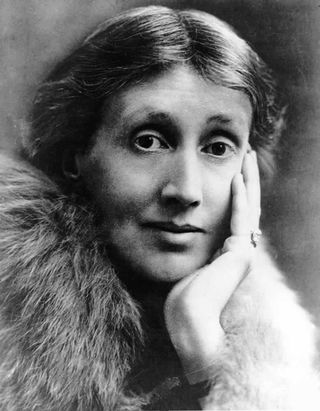
The Bank of England has just unveiled a new ten pound note celebrating Jane Austen, exactly 200 years after her death. The unveiling took place at Winchester Cathedral in southern England, where Austen is buried. The note also includes a quote from Pride and Prejudice: "I declare after all there is no enjoyment like reading!" Many Austen fans consider this an inappropriate quote given its context in the novel; an ironic slur on reading, from the mouth of the snooty Caroline Bingley who detested reading and was trying to impress Mr. Darcy. However, the powers in the design and approve team of the Bank of England (perhaps they were men, perhaps they hadn’t read the book?), defended their choice by declaring that it was “quintessential Austen” and “….draws out some of the essence of her social satire and her insight into people’s character.” Quick save, perhaps?

By happy chance, I was alerted by one of the internet book promoters who email me daily with enticing deeply discounted e-books in my favorite genres, that an e-book edition of Virginia Woolf’s A Room of One’s Own was on sale (Whatever would she think if she were still here… e-books? I believe she would embrace them as another way to spread books about). As I had last read this classic when I was at secondary school, I decided to read it again, now I have been living four times as long as I had then and have thus had at least four times as many life experiences. As these experiences include writing books, including fiction, I figured that I would now gain much more from reading Woolf’s long essay than I had when it was a set text for an English exam. I recalled, I thought, its essence, and in the years since have often come across the quote in Woolf’s book that goes “—a woman must have money and a room of her own if she is to write fiction…”
A Room of One’s Own was published in 1929, and is an extended essay, in six chapters, based on a series of lectures Woolf gave to two women’s colleges at Cambridge University in 1928. She was asked to lecture on “Women and Fiction” and begins this series of lectures with her reflections on what this topic might entail. From there she explores, through fictional characters from her own imagination, the history of fiction and women as writers, in particular using Shakespeare’s fictional sister, Judith, to demonstrate that because women did not have rooms of their own, nor money of their own, nor time to spend as they wished, nor husbands (who owned them) of their choice, it would have been impossible for Judith to achieve what her brother William achieved even supposing she was as creative and talented at writing as he was. Women in the Fifteenth Century were entirely absent as poets and novelists although paradoxically were frequently feisty characters in the poems and novels written by men. As Woolf writes:
“Women have burnt like beacons in all the works of all the poets from the beginning of time. Indeed if woman had no existence save in the fiction written by men, one would imagine her a person of the utmost importance; very various; heroic and mean; splendid and sordid; beautiful and hideous in the extreme; as great as a man, some would say greater. But this is woman in fiction. In fact, as Professor Trevelyan points out, she was locked up, beaten and flung about the room. A very queer, composite being thus emerges. Imaginatively she is of the highest importance; practically she is completely insignificant. She pervades poetry from cover to cover; she is all but absent from history. She dominates the lives of kings and conquerors in fiction; in fact she was the slave of any boy whose parents forced a ring upon her finger. Some of the most inspired words and profound thoughts in literature fall from her lips; in real life she could hardly read; scarcely spell; and was the property of her husband.”
Woolf then proceeds through history until she reaches the Eighteenth and Nineteenth Centuries when finally novels by women are being published, although some, like the Brontë sisters (pen names, Currer, Ellis and Acton Bell), George Eliot, and George Sands, disguise themselves as men. Woolfe elegantly unplucks the writing careers of a number of these now celebrated authors, including Jane Austen, who she argues is successful because although she may not be as fine a writer as Charlotte Brontë, she is more successful because she is one of the first women authors who writes unashamedly as a woman, exploring settings and themes she understands (and are considered trivial by men) rather than being constrained by the rules of fiction put in place by the long history of male writers. Charlotte Brontë, she argues, at times allows her own anger, her authorial voice, to intrude.
And so Woolfe takes us through to the present day (that is, the present day when she was writing her essay, 1928) by which time there were almost as many novels written by women as by men. As her conclusion she provides with great wit her take home messages to the students no doubt listening to her with bated breath.
“Young women….please attend….you are, in my opinion, disgracefully ignorant. You have never made a discovery of any sort of importance. You have never shaken an empire or led an army into battle. The plays of Shakespeare are not by you, and you have never introduced a barbarous race to the blessings of civilization. What is your excuse? It is all very well for you to say, pointing to the streets and squares and forests of the globe swarming with black and white and coffee-coloured inhabitants, all busily engaged in traffic and enterprise and love-making, we have other work on our hands. Without our doing, those seas would be unsailed and those fertile lands a desert. We have borne and bred and washed and taught, perhaps to the age of six or seven years, the one thousand six hundred and twenty-three million human beings who are, according to statistics, at present in existence, and that, allowing that some had help, takes time.”
But Woolfe ends on an up-note, coming back to Judith Shakespeare, and telling her listeners in those lectures she gave almost a century ago, that “….if we live another century or so….and have five hundred a year each of us and rooms of our own; if we have the freedom to write exactly what we think; if we escape a little from the common sitting room and see human beings not always in their relation to each other but in relation to reality….then the opportunity will come and the dead poet who was Shakespeare’s sister will put on the body which she has so often laid down. Drawing her life from the lives of the unknown who were her forerunners, as her brother did before her, she will be born. As for her coming without that preparation, without that effort on our part, without that determination that when she is born again she shall find it possible to live and write her poetry, that we cannot expect, for that would be impossible. But I maintain that she would come if we worked for her, and that so to work, even in poverty and obscurity, is worthwhile.”
Perhaps in 2041, one hundred years after Virginia Woolf’s death, the Bank of England will unveil another ten pound note with the face of Woolf on it and a quote from her that says “A woman must have money and a room of her own if she is to write fiction.”
If you love reading or writing, if you are a woman, or a man who respects women, if you are a psychologist, or a feminist, or a historian, or a person who loves good writing that stimulates thinking, give yourself a treat and read or re-read A Room of One’s Own, now available as an e-book, if not yet as a bank note!




